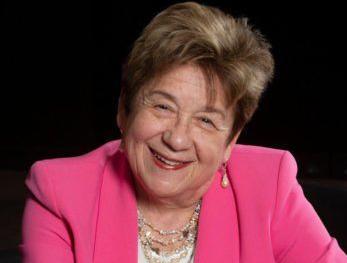
Susan E. Block
There’s a moment at the beginning of nearly every interaction with the criminal justice system that most of us think we understand, even if we’ve never experienced it ourselves.
The scene plays out in every television cop show. It’s when the police officer or detective slaps the handcuffs on a suspect and then says these words: “You have the right to remain silent.”
That’s the opening sentence in the , which the U.S. Supreme Court has required since 1966 to be read to defendants before they are interrogated. Susan Block has spent a lot of time recently thinking about the third sentence of that warning.
“You have the right to an attorney.”
Block is an attorney in Clayton who spent more than two decades as a judge in ��ѿ��ý County. For the last few years of her career as a judge she was the administrative judge of the ��ѿ��ý County Family Court. There, she frequently came across cases involving juveniles who had been arrested and interrogated by police, often without an attorney present.
People are also reading…
Block thinks differently about the issue now than she did then. She is part of a growing movement of criminal justice reform advocates who believe that juveniles don’t have the proper mental capacity to waive their right to an attorney, a daily occurrence in police stations and detention centers across the country.
“I was a part of the system,” she says. “Guilty as charged. I didn’t notice it.”
Block co-chairs a juvenile justice subcommittee under the auspices of the Missouri Supreme Court that has been studying the issue for a couple of years. Missouri, in particular, has had issues with juveniles waiving their right to an attorney that was highlighted by by the National Juvenile Defender Center that found the state’s juvenile justice system to be “in crisis,” with particularly disparate outcomes for children of color. Two years later, the Department of Justice entered into an agreement with the ��ѿ��ý Family Court to try to improve upon the interrogations that were taking place at the juvenile justice center.
But the problem persists, in the urban and rural areas of the state, Block says. The problem is that juveniles simply don’t have the proper mental capacity to understand what constitutional rights they are waiving, when they agree to be interrogated by police before contacting an attorney.
Missouri’s courts, she believes, should fix that problem. To that end, Block’s committee recently suggested to the Missouri Supreme Court that the state undertake a pilot project that could lead to a new rule being adopted that no child could be interrogated after being detained without first having received advice from an attorney.
The court balked at the idea.
That’s unfortunate, says Amy Borror, the senior youth police strategist at , a nonprofit that advocates for the protection of juvenile constitutional rights.
“The better job we do as soon as they first contact the system, then the better job we will do getting them out of system, producing greater cost savings, reducing future criminal activity,” Borror says.
There are four states — Maryland, Illinois, California and Washington — that have adopted a rule similar to the one Block and her colleagues proposed in Missouri. The rule mirrors legislation that was introduced in the Missouri Legislature in 2019 that failed to gain traction.
For Block, the rule just makes common sense. The U.S. Supreme Court has already reached multiple rulings in cases related to sentencing that juveniles don’t have the capacity that adults do to understand their actions. So why should the same system let them waive their rights in a way that could have devastating consequences on their lives?
Like everything else in the criminal justice system, the poor are those most likely to suffer disparate consequences — and that’s especially true for children. Block says she plans to keep advocating for the issue, with the hope that the Missouri Supreme Court or the Missouri Legislature will realize that the cause of public safety is improved if juveniles’ constitutional rights are protected early on.
“I’m not saying kids shouldn’t be held accountable,” Block says. “But kids without resources are not getting the same treatment.”
��ѿ��ý Post-Dispatch metro columnist Tony Messenger thanks his readers and explains how to get in contact with him.















